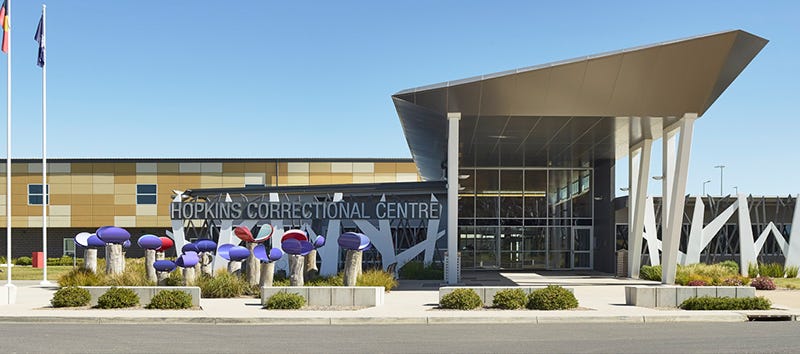Caring for older people in prison
The prison holding the majority of older detainees in Victoria will finally be employing personal care attendants to look after their basic needs.
Personal care attendants will soon be placed in Victorian prisons to assist older detainees, as states continue to grapple with ageing prison populations.
The Victorian government has entered into a $800,000 contract with Australian National Disability Services for the provision of personal care attendants at the Hopkins Correctional Centre and Langi Kal Kal Prison.
These two prisons hold the majority of older people in prison in the state.
The carers will help elderly and frail people in prison with intimate care services at the two prisons.
It’s understood to be the first time that professional carers have been placed inside Hopkins prison, despite long-standing issues with the care of elderly detainees. Personal care attendants have been located at the state’s largest women’s prison, the Dame Phyllis Frost Centre, since August last year.
Alpha Services Australia provided these services on a $960,000 contract, which ran until 31 July this year. It’s unclear whether this contract was renewed or if personal care attendants are still working at the prison.
These carers attend the prison every day of the week to assist mainly to the hygiene needs of people in prison who cannot do this themselves.
In the recent budget, the Victorian government allocated $2.5 million for aged care in prisons, including $1.8 million for personal care services.
It’s not the first time that there have been attempts made to place personal care attendants at the Hopkins prison, which houses the majority of older people in prison in the state.
It’s understood that the prison went so far as even hiring a number of personal care attendants and giving them a tour of the prison last year, before cancelling the program due to safety concerns.
There are significant problems for older people in prison in showering themselves, going to the toilet and managing things like continence aids. A fix that has been used across Australia and in other countries is other, younger prisoners acting as care-givers to assist the older detainees.
Research often classifies older prisoners as those aged 45 years and older, due to the higher likelihood they will have health problems, and the accelerated ageing caused by prison.
The number of older prisoners under this definition in Victoria has more than doubled in the last 20 years, and they now account for nearly a quarter of the 43,000 people in Australian prisons.
This is down to the ageing population in general, changes in laws to recognise more assaults, mandatory sentencing, more awareness and charges around sexual assault and the greater use of DNA evidence.
As of mid-2021, there were 9898 people in prison aged over 45, including 1302 aged over 65 years old. Just under a quarter of all people in prison across Australia are aged over 45.

